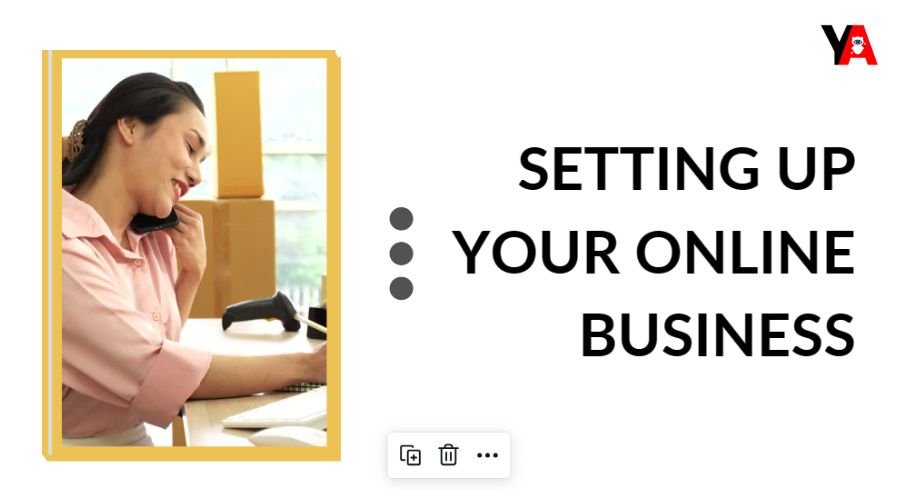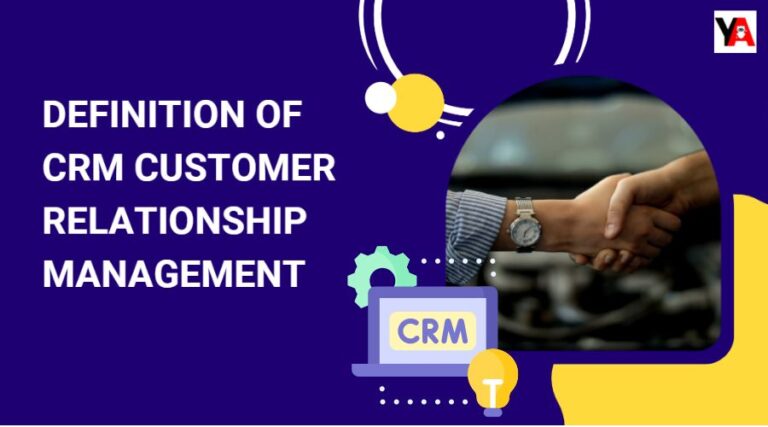For those who want to become entrepreneurs, launching a small online business ideas in the modern age of technology is a very promising and exciting option.
With the global shift towards e-commerce and digital transactions, the barriers to entry have significantly diminished, allowing individuals from all walks of life to embark on their entrepreneurial journey.
The internet provides a wealth of opportunities to investigate, whether your goals are to boost your income, follow your passion, or break free from the constraints of traditional employment.
In this in-depth guide, we’ll explore a wide range of tiny internet business ideas that are perfect for beginners. From freelancing services to e-commerce ventures and digital products, there’s something for everyone in the dynamic world of online entrepreneurship.
Table of Contents
ToggleOverview of Landscape of Online Business Ideas
Recent years have seen an unparalleled rise in the digital economy, driven by both shifting consumer preferences and technology improvements.
Businesses of all sorts, from multinational conglomerates to lone proprietors, are utilizing the internet’s potential to expand their reach and spur growth.
Understanding the nuances of the online business landscape is crucial for aspiring entrepreneurs to navigate effectively.
1. The Rise of E-Commerce
The proliferation of e-commerce platforms has revolutionized the way goods and services are bought and sold. There are countless options for entrepreneurs, ranging from specialized e-commerce stores to internet marketplaces like Amazon and eBay.
2. Advantages of Online Businesses
Unlike traditional brick-and-mortar establishments, online businesses offer unparalleled flexibility, scalability, and accessibility. With minimal overhead costs and the ability to operate 24/7, entrepreneurs can reach customers across geographical boundaries without being constrained by physical limitations.
3. Common Challenges Faced by Beginners
While the prospect of starting an online business may seem enticing, beginners often encounter various challenges along the way. Intense competition, complicated technological issues, and the requirement for strong branding and marketing plans are a few examples.
Identifying Your Passion and Niche
Finding your passion and specialization is one of the first stages in starting your own business. You’ll enjoy the process and improve your chances of long-term success if you match your business with your interests and areas of skill.
- Assessing Your Skills and Interests: Take stock of your skills, talents, and hobbies to identify potential business opportunities. Whether you’re a talented graphic designer, a wordsmith with a flair for writing, or a social media savvy individual, there’s a niche waiting to be explored.
- Researching Market Trends and Demands: Conduct thorough market research to identify emerging trends, consumer demands, and gaps in the market. Analyze competitors, explore customer feedback, and leverage tools like Google Trends and keyword research to uncover lucrative opportunities.
- Narrowing Down Profitable Niches: Once you’ve identified your areas of interest and market trends, narrow down your focus to profitable niches with high demand and low competition. Whether it’s niche-specific products, specialized services, or unique digital offerings, carving out a distinct niche will set you apart from the competition.
Top Online Business Ideas for Beginners
Armed with insights into the online business landscape and a clear understanding of your passion and niche, it’s time to explore some lucrative business ideas tailored for beginners.
1. Freelancing Services
Freelancing offers a flexible and accessible way to monetize your skills and expertise across a diverse range of industries. Whether you’re a graphic designer, a content writer, or a social media strategist, there’s a burgeoning demand for freelance services in today’s gig economy.
- Graphic Design: With the proliferation of online content and branding initiatives, businesses are constantly in need of eye-catching graphics, logos, and visual assets. If you have a knack for design and proficiency in tools like Adobe Photoshop and Illustrator, consider offering graphic design services to clients worldwide.
- Content Writing: Quality content is the cornerstone of online marketing and branding efforts, driving traffic, engagement, and conversions. If you have a way with words and a passion for storytelling, freelance writing offers a plethora of opportunities, including blog posts, articles, website copy, and more.
- Social Media Management: In an era dominated by social media, businesses are increasingly outsourcing their social media management to skilled professionals who can curate compelling content, engage with followers, and drive brand awareness. If you’re skilled at using Facebook, Instagram, and Twitter, you might want to think about providing small companies and entrepreneurs with social media management services.
2. E-Commerce Ventures
The development of e-commerce platforms has made it easier for business owners to launch an online store and offer goods and services to customers throughout the world for a very little initial outlay of funds.
- Dropshipping: A well-liked e-commerce strategy that lets business owners sell goods without worrying about logistics of fulfillment or inventory management is dropshipping. You can offer products on your internet store and fulfill orders straight from the provider by collaborating with wholesalers and suppliers. This eliminates the need for upfront funding and storage space.
- Print-on-Demand: With print-on-demand services, business owners can develop and market personalized products like clothing, accessories, and home décor without having to worry about stockpiling or making a large initial expenditure. With print-on-demand platforms like Printful and Teespring, you can upload your designs and sell them to customers worldwide, earning a profit margin on each sale.
- Handmade Crafts and Artworks: If you’re a talented artist or craftsperson, consider turning your passion into a profitable online business by selling handmade crafts and artworks. Platforms like Etsy provide a dedicated marketplace for artisans to showcase their creations and connect with a global customer base who appreciate unique, handcrafted products.
3. Digital Products and Courses
In addition to physical products, there’s a growing demand for digital products and online courses in today’s knowledge economy. For business owners, producing and marketing digital goods—such as e-books, online courses, or digital downloads—offers a flexible and passive revenue stream.
- E-Books and Guides: If you’re knowledgeable about a particular subject or niche, consider writing and self-publishing e-books and guides to share your expertise with a wider audience. Whether it’s a how-to guide, a recipe book, or a comprehensive e-book on a niche topic, platforms like Amazon Kindle Direct Publishing offer a streamlined process for authors to publish and sell their digital creations.
- Online Training and Courses: It’s now easier than ever to create and market online courses because to the growth of platforms such as Teachable, Coursera, and Udemy. Whether you’re an expert in photography, programming, or digital marketing, you can create and monetize your knowledge by offering online courses and tutorials to students worldwide.
- Stock Photography and Videos: Selling stock images and movies online is a viable way to make money from your creative endeavors if you have an interest for photography or filmmaking. Platforms like Shutterstock, Adobe Stock, and Getty Images provide a marketplace for photographers and videographers to license their work to businesses, publishers, and creatives around the world.
4. Affiliate Marketing
Affiliate marketing provides novices with a way to generate passive money by endorsing goods and services from other businesses in exchange for commissions. You can make money online by participating in affiliate programs and using your unique affiliate links to drive sales and referrals.
- Niche Blogging: Starting a niche blog allows you to share valuable content, build an audience, and monetize your blog through affiliate marketing. By creating high-quality, informative content around a specific niche or industry, you can attract targeted traffic and promote relevant affiliate products and services to your audience.
- Product Reviews and Recommendations: Reviewing products and recommending them to your audience is another effective way to monetize your online presence through affiliate marketing. You may build credibility with your audience and increase revenue through your affiliate links by offering frank and perceptive reviews of goods and services in your field. There is an affiliate network for practically every product category, including computer devices, cosmetics, and exercise gear.
- Comparison Websites: Creating comparison websites or product review aggregators allows you to provide valuable information to consumers who are researching their purchasing decisions. By comparing features, prices, and customer reviews of various products within a niche, you can help your audience make informed choices while earning commissions through affiliate partnerships with retailers and service providers.
Setting Up Your Online Business

With a viable business idea in hand, it’s time to roll up your sleeves and set up your online business infrastructure. From choosing a domain name to building your website and establishing payment gateways, there are several key steps involved in launching your online venture.
Step 1. Selecting a Domain Name and Hosting
Since your domain name is a representation of your online personality, pick a catchy, recognizable name that fits the niche of your company. Once you’ve selected a domain name, choose a reliable hosting platform to host your website and ensure optimal performance and security.
Step 2. Building Your Website or Online Store
Depending on your business model, choose a suitable platform for building your website or online store. Whether it’s WordPress for content-based websites, Shopify for e-commerce stores, or Teachable for online courses, select a platform that aligns with your business goals and technical expertise.
Step 3. Creating Payment Gateways and Security Measures
Integrate safe payment gateways like PayPal, Stripe, or Square into your website to enable online transactions and guarantee a flawless purchasing experience for your clients. Establish audience trust by implementing SSL encryption and other security measures to safeguard important customer data.
Step 4. Developing Strong Brands and Content
Put in the time and energy necessary to produce branding assets and content of the highest caliber that appeal to your target market. Create a unified brand identity that makes you stand out from the competition, from fascinating product descriptions and attractive website text to eye-catching images and videos.
Marketing and Promoting Your Business
Starting an internet business is only the first step; the real difficulty is drawing in and keeping clients in a crowded online market. Effective marketing and promotional strategies are essential to boost traffic, lead creation, and ultimately income.
- Search Engine Optimization (SEO): To increase your exposure and rankings in natural search results, optimize your website for search engines. Researching keywords, improving on-page content, and constructing high-quality backlinks will help your website gain more credibility and draw in relevant visitors from search engines like Google.
- Social Media Marketing (SMM): Utilize social media platforms to engage with your audience, build a relationship, and promote your products and services. To encourage community involvement and brand loyalty, build a comprehensive social media marketing plan, produce interesting content, and communicate with your fans.
- Email Marketing Campaigns: Create a subscriber and consumer mailing list to foster relationships, provide insightful material, and advertise your goods and services. Create targeted email marketing campaigns, segment your audience based on their preferences and behaviors, and personalize your messages to drive conversions and maximize ROI.
- Collaborations and Partnerships: Collaborate with influencers, bloggers, and complementary brands to expand your reach and tap into new audiences. To capitalize on their pre-existing fan following and credibility, collaborate with influencers to have them support your products, take part in joint marketing efforts, or cross-promote each other’s content.
Managing Finances and Scaling Your Business
As your online business grows and evolves, it’s crucial to manage your finances effectively and implement scalable strategies to sustain long-term growth and profitability.
- Budgeting and Financial Planning: Create a thorough financial strategy and budget to manage spending, distribute resources wisely, and reinvest earnings back into your company. Track your income and expenses, monitor key performance indicators (KPIs), and adjust your financial strategy as needed to achieve your business goals.
- Tracking Expenses and Revenue: Keep meticulous records of your business expenses and revenue to maintain financial transparency and compliance. To keep track of your finances, reconcile accounts, and create correct financial statements for taxation, use accounting programs or engage a qualified accountant.
- Scaling Strategies and Growth Opportunities: Identify opportunities for expansion and diversification to scale your business and reach new markets. Whether it’s launching new products or services, expanding into new geographical regions, or implementing innovative marketing strategies, continuously assess and pursue growth opportunities to stay competitive and maximize your potential.
- Seeking Professional Advice and Support: Don’t hesitate to seek professional advice and support from mentors, advisors, or industry experts to navigate the complexities of running an online business. Join online communities, attend networking events, and leverage resources like business incubators and accelerators to gain insights, feedback, and guidance from experienced entrepreneurs.
Final Words
Starting a business may be thrilling and difficult at the same time, especially for beginners. However, you may make your small online company concept a profitable endeavor if you have the correct attitude, perseverance, and strategic approach.
Whether you choose to freelance your skills, launch an e-commerce store, or create digital products, the key is to identify your passion, understand your target market, and deliver value to your customers.
To maintain a position ahead of the curve in the ever-changing world of internet business, keep an open mind, keep learning from your experiences, and embrace innovation.
With perseverance, creativity, and a relentless pursuit of excellence, you can unlock the limitless potential of entrepreneurship and build a successful online business that fulfills your dreams and aspirations. Take the risk, grab the chance, and confidently start your entrepreneurial path now.
Share




















